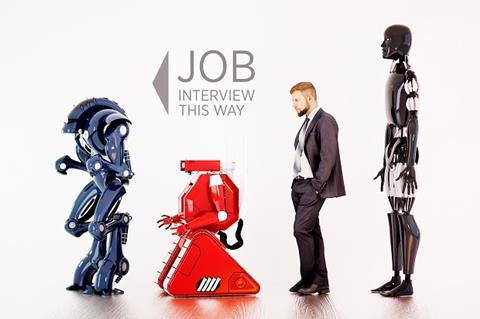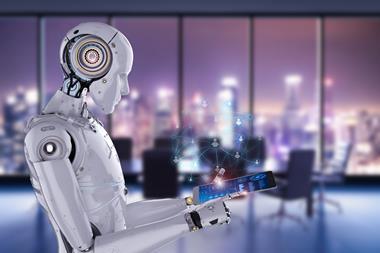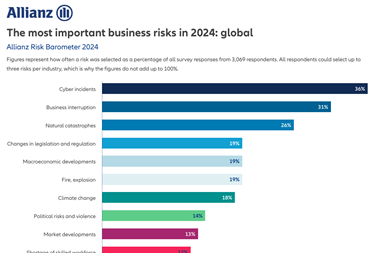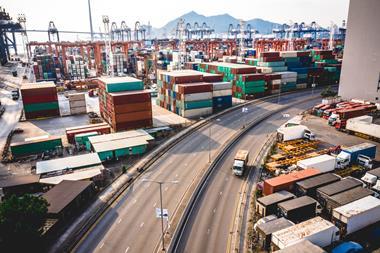Artficial intelligence creates opportunities for organisations, but also significant threats. At the World Economic Forum in Davos, speakers highlighted the risks and the key steps for mitigating them.
A key theme of this year’s World Economic Forum in Davos was the role of artificial intelligence as a driving force for economonies and societies.
However, speakers throughout the conference stressed the critical importance of better risk management practices surrounding the use of this rapidly evolving technology.

Ursula von der Leyen, President of the European Commission said: “AI is a very significant opportunity – if used in a responsible way.
“Our future competitiveness depends on AI adoption in our daily businesses, and Europe must up its game and show the way to responsible use of AI.”
António Guterres, UN Secretary-General, used his Davos address to warn of the “existential threat” posed by “the runaway development of AI without guard rails”.
He called for the full engagement of the private sector in the UN’s multi-stakeholder effort to develop a governance model that can tap the benefits of AI technology while mitigating its risks.
“Europe must up its game and show the way to responsible use of AI.”
He said: “We need governments urgently to work with tech companies on risk management frameworks for current AI development, and on monitoring and mitigating future harms.”
Li Qiang, Premier of the State Council of the People’s Republic of China, also addressed the risks of artificial intelligence in his special address, stating that the technology is a double-edged sword.
He said: “If it is applied well, it can do good and bring opportunities to the progress of human civilisation and provide great impetus to the industrial and scientific revolution.
“But at the same time, it also poses risks to security and ethics. China believes technology must serve the common good of humanity, it must do good, and the same applies to AI.”
“We need governments urgently to work with tech companies on risk management frameworks for current AI development”
For Gilbert Fossoun Houngbo, Director-General of the International Labour Organization, helping employees to navigate new technologies through reskilling, upskilling and lifelong learning is crucial.
He explained: “We do not believe that AI is going to [cause] an employment apocalypse… Although it is true that millions of jobs are going to be lost and millions of jobs are going to be created, the augmentation side is the transformation side.”
Hadi Partovi, founder and CEO of Code.org agreed, adding that people do not lose their jobs to AI, they lose them to people who know how to use the technology.
He said: “It’s not that the worker gets replaced by just a robot or a machine in most cases, especially for desk jobs, it’s that some better educated or more modernly educated worker can do that job because they can be twice as productive or three times as productive.”
“The imperative is to teach how AI tools work to every citizen, and especially to our young people.”
The role of AI in risk management
Airmic research found that its Millennial and Generation Z members are ready to embrace the promise of AI, contrary to fears of the technology taking jobs away or posing an existential threat to humanity.
Hannah Leighfield, insurance manager at Liberty Global, said: “It can take over repetitive tasks such as data entry, while freeing us to perform other roles for our organisations. That’s not a bad thing.”
“We need to invest in the right future, so that risk professionals can realise the promise of AI”
Indeed, AI may help equip risk professionals to bring greater value to their organisations.
As fears of ethical and other risks grow, it will reinforce the need for human decision-making and oversight, a role which risk professionals are well positioned to take up. However, risk professionals must have the right priorities.
The report concludes: “We need to invest in the right future, so that risk professionals can realise the promise of AI and not let its dangers destroy society. This means identifying the right skills that risk professionals need to navigate their organisations through an AI-enabled future.”




















No comments yet